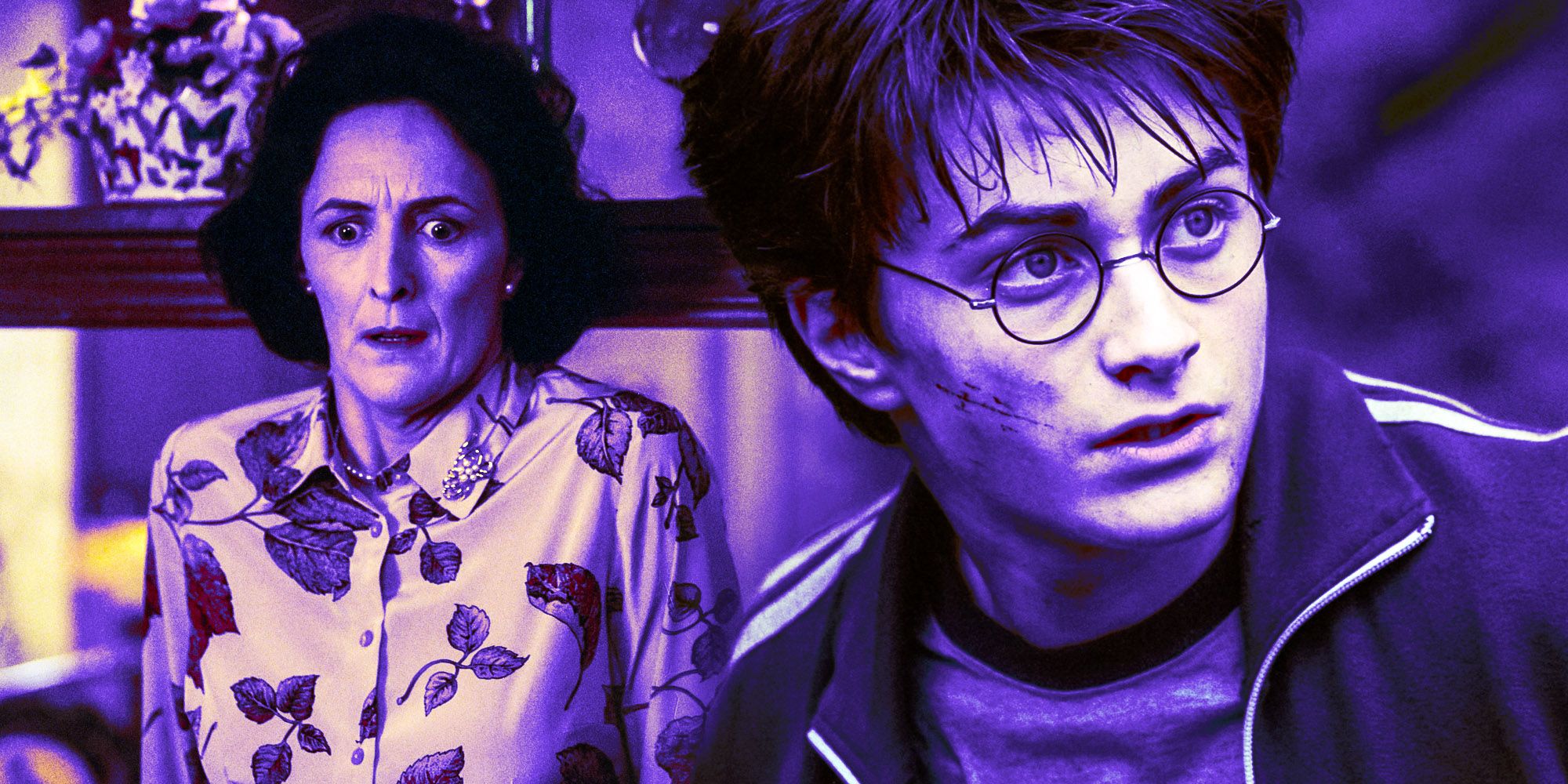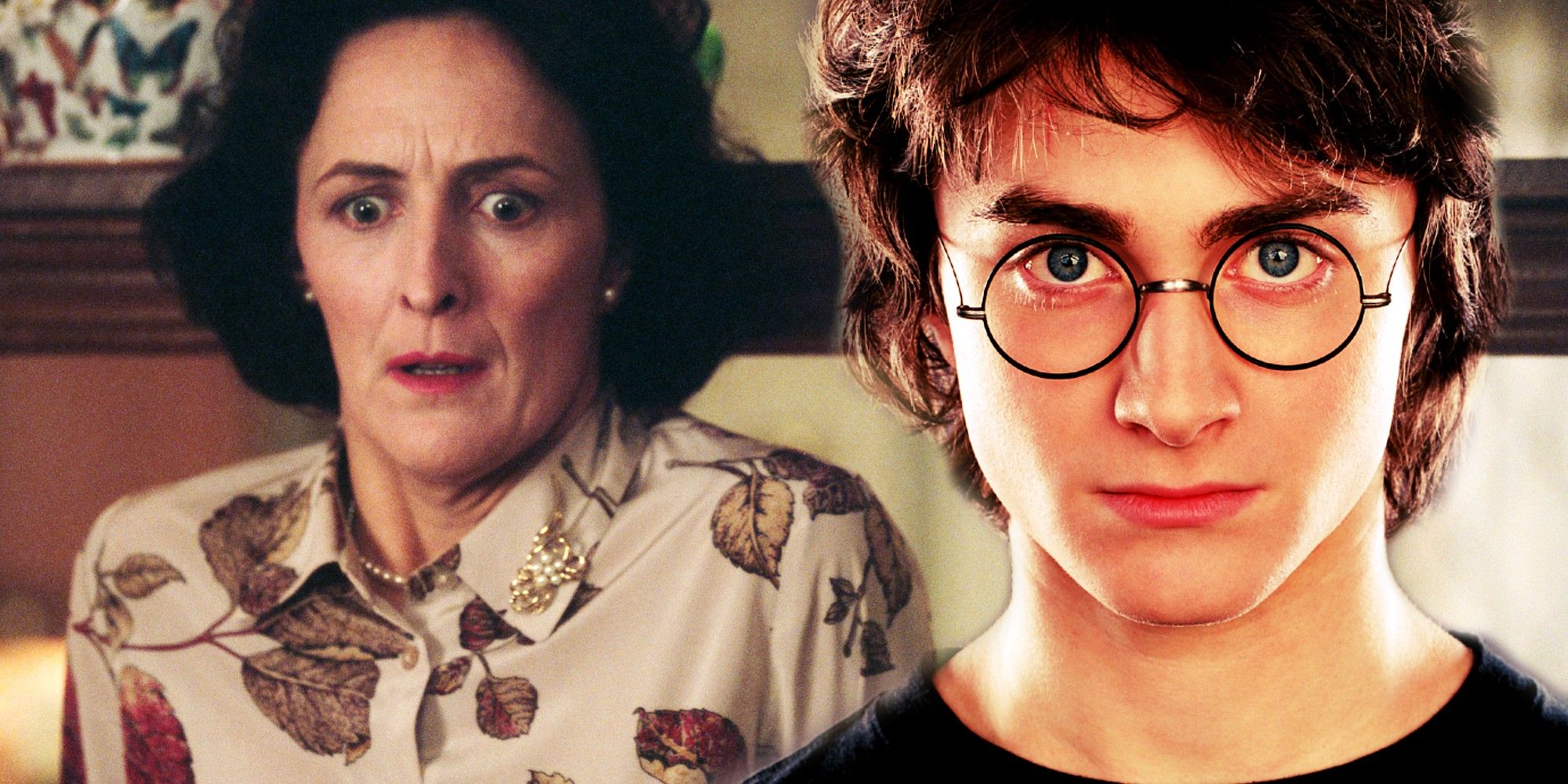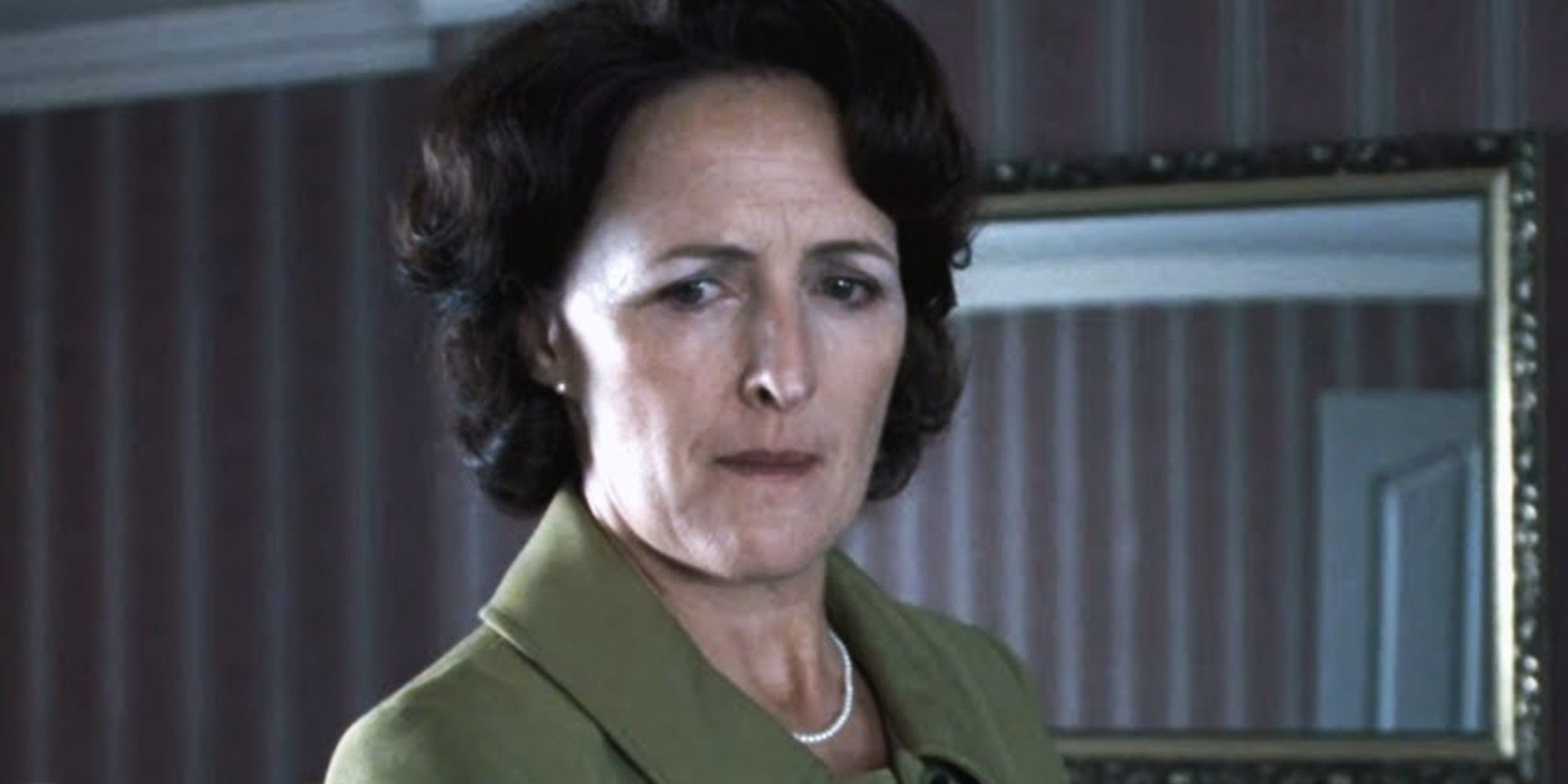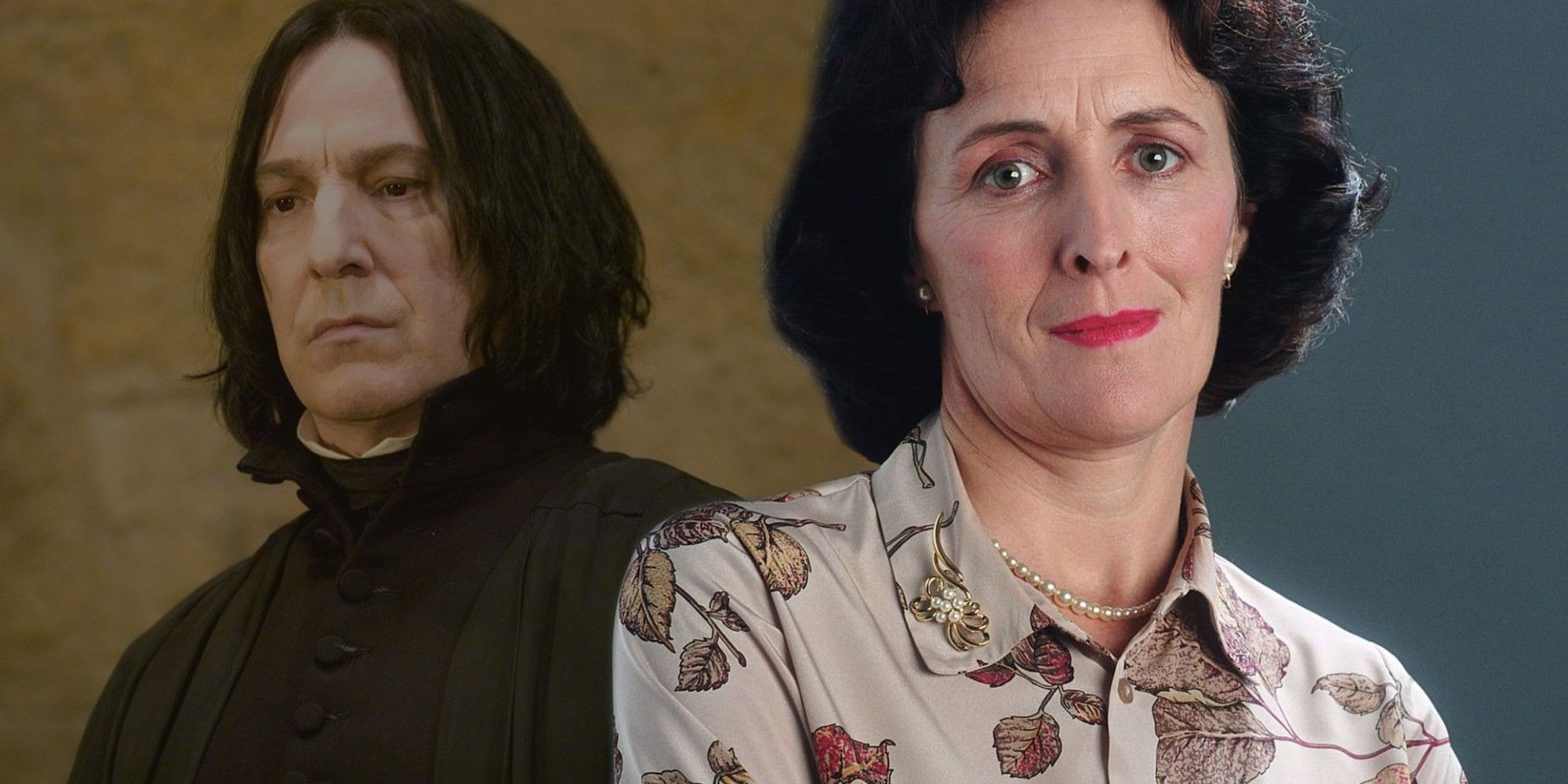Petunia Dursley had a complicated story in the Harry Potter books, especially regarding morality—but the movies didn't do her character justice. Harry's aunt treated him terribly during his years living with the Dursleys, and her behavior was abusive, no matter how you look at it. However, while the movies made her nothing more than a villain, the books demonstrated how even someone as despicable as Patunia is more complex than that. Harry subtly learned this through his journey in the Harry Potter series, but it was never adequately translated to the screen.
At the beginning of the Harry Potter books, Petunia Dursley fell within the comically-cruel character archetype. This common trope created a contrast between Harry's miserable life before attending Hogwarts and the magic after. Of course, as the series continued, this trope was flipped by the subtle hints revealing that Petunia cared more for her sister than she used to claim. By the end, Harry learned the whole truth, and though it didn't entirely redeem Petunia, it added several layers to her character. Unfortunately, This would have been difficult for the films to capture to the same effect, so Petunia's best moments were left out.
Harry & Petunia Shared 1 Emotional Moment In the Harry Potter Books
There could be no excuse for how Petunia treated Harry throughout the Harry Potter series. She starved and neglected him, and there were several implications of physical abuse. However, where the Harry Potter movies left it at that, the books explained why Petunia was so cruel. In Harry Potter and the Deathly Hallows, Harry observed a memory that revealed that Petunia's biggest secret was that she had once been desperate to go with her sister to Hogwarts. She felt rejected by the wizarding world and therefore resented it, and that only grew worse when Lily was killed.
Though Petunia pretended to have always hated her sister, Snape's memories in Deathly Hallows proved that this was not true. However, Harry had realized this to an extent back in the Harry Potter and the Order of the Phoenix book when he told his aunt and uncle that Lord Voldemort was back. Vernon had no idea who this was, but Petunia immediately became terrified. She was painfully aware of who the Dark Lord was and what he was capable of, and for the first time, Harry felt something of a connection with his aunt:
"She was looking at Harry as she had never looked at him before. And all of a sudden, for the very first time in his life, Harry fully appreciated that Aunt Petunia was his mother’s sister. He could not have said why this hit him so very powerfully at this moment. All he knew was that he was not the only person in the room who had an inkling of what Lord Voldemort being back might mean. Aunt Petunia had never in her life looked at him like that before. Her large, pale eyes (so unlike her sister’s) were not narrowed in dislike or anger: They were wide and fearful. The furious pretense that Aunt Petunia had maintained all Harry’s life — that there was no magic and no world other than the world she inhabited with Uncle Vernon — seemed to have fallen away." - Harry Potter and the Order of the Phoenix
At this moment, Harry realized that the magical world was more to Petunia than just a group of people that she found disturbing (as it was for her husband). It was a place that had taken her sister from her when she was a child, rejected her, humiliated her, and later took Lily away again for good. Petunia had tried to escape it and pretend that it didn't exist, but because of Lily, she couldn't. She resented Harry so much because he was a sign of the magical world that she couldn't get rid of. Of course, this wasn't something she would ever say, which made it nearly impossible to adapt to the Harry Potter movies.
A Harry Potter Deleted Scene Tried To Redeem Aunt Petunia
It's clear from Petunia's treatment of Harry that she was not an emotionally mature person. She was in complete denial about how she treated Harry and never had a moment in which she realized she had been wrong and felt remorse. Instead, Harry only subtly realized how Petunia felt and never said anything to her about it or took the time to forgive her. Therefore, there was no easy way for the Harry Potter movies to include Petunia's complex story since a character explaining it to the audience just wouldn't have worked.
One of the deleted scenes from Harry Potter and the Deathly Hallows attempted to bring Petunia's complicated feelings to the screen. It would have shown a brief moment between Harry and his aunt before the Dursleys left their home on Privet Drive, in which Petunia told Harry that he hadn't just lost a mother the day Voldemort attacked his family, but that she had lost a sister. It was an emotionally impactful moment that somewhat summed up the conclusion Harry had come to in the Order of the Phoenix book. However, with limited time, it—as well as Snape's full memory scene—was cut.
Why Petunia (& Other Harry Potter Villains) Never Got A Real Redemption
Even with the added context of the Harry Potter books, fans have been scratching their heads about Petunia's morality for years. She had done bad things, but the hints that she had cared for her sister (and even Harry, in a way) implied that she could have found some redemption. Frustratingly, the series didn't bring Petunia any such satisfying Harry Potter redemption. The end of her story was left with a big question mark and a few details showing that she hadn't been all bad or all good.
This was a trend for the Harry Potter series, which explored morality in greyscale rather than black or white. Harry was definitively good, and Voldemort definitively evil, but every other character in the series fell somewhere in the middle. Severus Snape is another character that frustrated fans, with many wishing that the books had clearly identified him as good or bad. However, just as this often isn't the way of the real world, it wasn't the way of Harry Potter. Petunia Dursley was a complex version of an old literary villain trope—a great way of showing that morality is never really that simple.




